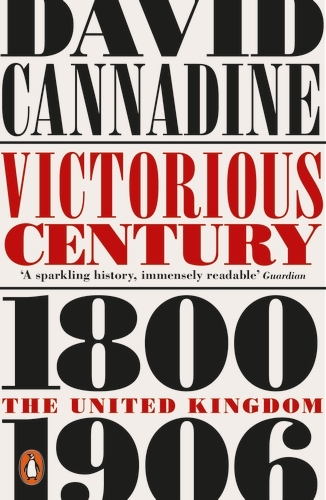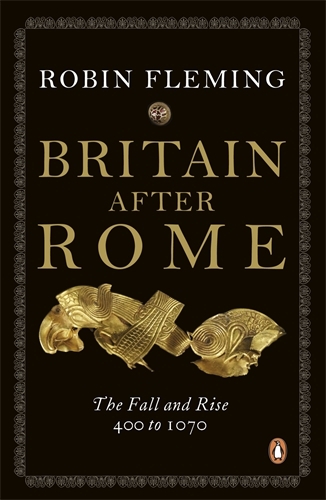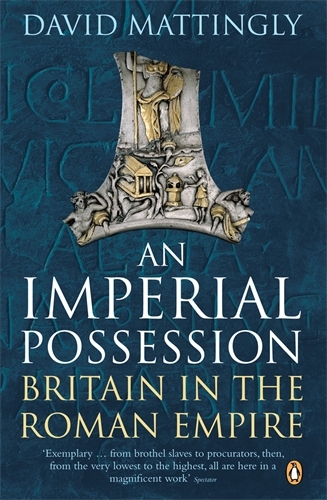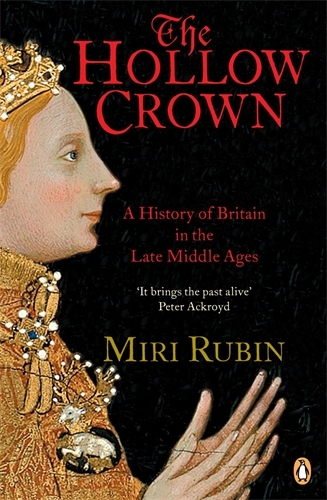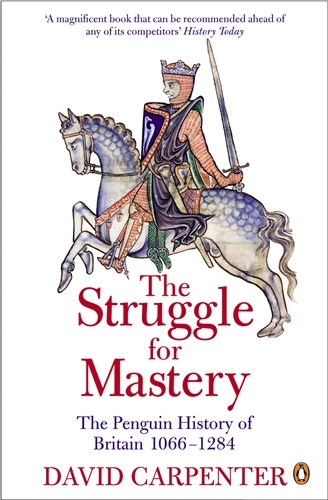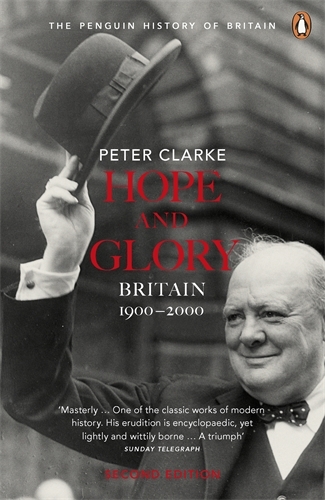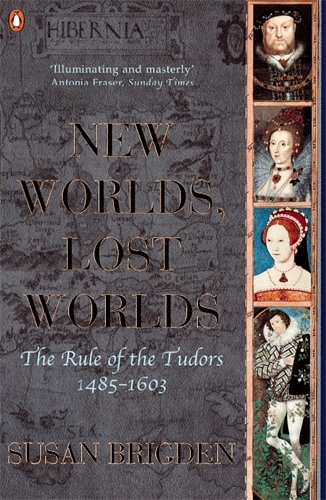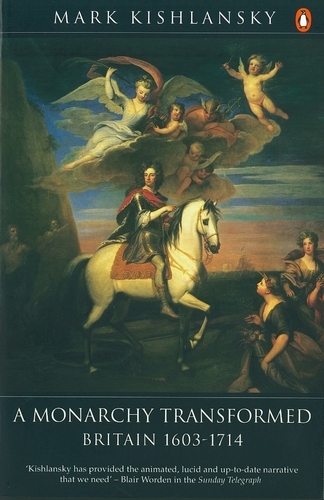Penguin History of Britain
9 books in this series
Victorious Century
To live in Victorian Britain was to experience an astonishing series of changes, of a kind for which there was simply no precedent in the human experience. There were revolutions in transport, communication, work; cities grew vast; scientific ideas made the intellectual landscape unrecognizable. This was an exhilarating time, but also a horrifying one.
David Cannadine has created a bold, fascinating new interpretation of Victorian Britain. This was a country which saw itself at the summit of the world. And yet it was a society also convulsed by doubt, fear and introspection. Repeatedly, politicians and writers felt themselves to be staring into the abyss and what is seen as an era of irritating self-belief was in practice obsessed by a sense of its own fragility, whether as a great power or as a moral force. Victorious Century catches the relish and humour of the age, but also the dilemmas of a kind with which we remain familiar today.
David Cannadine has created a bold, fascinating new interpretation of Victorian Britain. This was a country which saw itself at the summit of the world. And yet it was a society also convulsed by doubt, fear and introspection. Repeatedly, politicians and writers felt themselves to be staring into the abyss and what is seen as an era of irritating self-belief was in practice obsessed by a sense of its own fragility, whether as a great power or as a moral force. Victorious Century catches the relish and humour of the age, but also the dilemmas of a kind with which we remain familiar today.
Britain After Rome
The enormous hoard of beautiful gold military objects found in a field in Staffordshire has focused huge attention on the mysterious world of 7th and 8th century Britain. Clearly the product of a sophisticated, wealthy, highly militarized society, the objects beg innumerable questions about how we are to understand the people who once walked across the same landscape we inhabit, who are our ancestors and yet left such a slight record of their presence.
Britain after Rome brings together a wealth of research and imaginative engagement to bring us as close as we can hope to get to the tumultuous centuries between the departure of the Roman legions and the arrival of Norman invaders nearly seven centuries later. As towns fell into total decay, Christianity disappeared and wave upon wave of invaders swept across the island, it can be too easily assumed that life in Britain became intolerable - and yet this is the world in which modern languages and political arrangements were forged, a number of fascinating cultures rose and fell and tantalizing glimpses, principally through the study of buildings and burials, can be had of a surprising and resilient place.
The result of a lifetime of work, Robin Fleming's major new addition to the Penguin History of Britain could not be more opportune. A richly enjoyable, varied and surprising book, Britain after Rome allows its readers to see Britain's history in a quite new light.
Britain after Rome brings together a wealth of research and imaginative engagement to bring us as close as we can hope to get to the tumultuous centuries between the departure of the Roman legions and the arrival of Norman invaders nearly seven centuries later. As towns fell into total decay, Christianity disappeared and wave upon wave of invaders swept across the island, it can be too easily assumed that life in Britain became intolerable - and yet this is the world in which modern languages and political arrangements were forged, a number of fascinating cultures rose and fell and tantalizing glimpses, principally through the study of buildings and burials, can be had of a surprising and resilient place.
The result of a lifetime of work, Robin Fleming's major new addition to the Penguin History of Britain could not be more opportune. A richly enjoyable, varied and surprising book, Britain after Rome allows its readers to see Britain's history in a quite new light.
An Imperial Possession
Part of the Penguin History of Britain series, An Imperial Possession is the first major narrative history of Roman Britain for a generation. David Mattingly draws on a wealth of new findings and knowledge to cut through the myths and misunderstandings that so commonly surround our beliefs about this period. From the rebellious chiefs and druids who led native British resistance, to the experiences of the Roman military leaders in this remote, dangerous outpost of Europe, this book explores the reality of life in occupied Britain within the context of the shifting fortunes of the Roman Empire.
The Hollow Crown
There is no more haunting, compelling period in Britain's history than the later middle ages. The extraordinary kings - Edward III and Henry V, the great warriors, Richard II and Henry VI, tragic inadequates killed by their failure to use their power, and Richard III, the demon king. The extraordinary events - the Black Death that destroyed a third of the population, the Peasants' Revolt, the Wars of the Roses, the Battle of Agincourt. The extraordinary artistic achievements - the great churches, castles and tombs that still dominate the landscape, the birth of the English language in The Canterbury Tales. For the first time in a generation, a historian has had the vision and confidence to write a spell-binding account of the era immortalised by Shakespeare's history plays. The Hollow Crown brilliantly brings to life for the reader a world we have long lost - a strange, Catholic, rural country of monks, peasants, knights and merchants, almost perpetually at war - but continues to define so much of England's national myth.
The Penguin History of Britain: The Struggle for Mastery
The two-and-a-half centuries after 1066 were momentous ones in the history of Britain. In 1066, England was conquered for the last time. The Anglo-Saxon ruling class was destroyed and and the English became a subject race, dominated by a Norman-French dynasty and aristocracy. This book shows how the English domination of the kingdom was by no means a foregone conclusion.
The struggle for mastery in the book's title is in reality the struggle for different masteries within Great Britain. The book weaves together the histories of England, Scotland and Wales in a new way and argues that all three, in their different fashions, were competing for domination
The struggle for mastery in the book's title is in reality the struggle for different masteries within Great Britain. The book weaves together the histories of England, Scotland and Wales in a new way and argues that all three, in their different fashions, were competing for domination
Hope and Glory
Peter Clarke brilliantly challenges the commonly held view of Britain in the twentieth century as a nation in decline. Adopting a wide perspective, he examines the political. social and economic changes that transformed Britain. He looks at how jobs and prices, food and shelter, and education and welfare, shaped society and explores such areas as architecture, sport and popular culture. Embracing a century of national experience, Hope and Glory superbly conveys the diverse aspects of three generations who lived through unparalleled change.
The Penguin History of Britain
No period in British history today retains more resonance and mystery than the sixteenth century. The leading figures of the time have become almost mythical, and the terrors and grandeurs of Tudor Britain have resonance with even the least historically minded readers. Above all Brigden sees the key to the Tudor world as religion - the new world of Protestantism and its battle with the the old world of uniform Catholicism. This great religious rent in the fabric of English society underlies the savage violence and turbulence of the period - from Henry VIII's break with Rome to the overwhelming threat of the Spanish Armada. 'NEW WORLDS, LOST WORLDS' is a startlingly atmospheric tour de force.
The Penguin History of Britain
The sixth of nine volumes in the major Penguin History of Britain series, A Monarchy Transformed narrates the tempestuous political events of the Stuart dynasty. It charts the reigns of six monarchs, and the course of two revolutions as well as religious upheavals that shook the beliefs of seventeenth-century Britons to the core.
